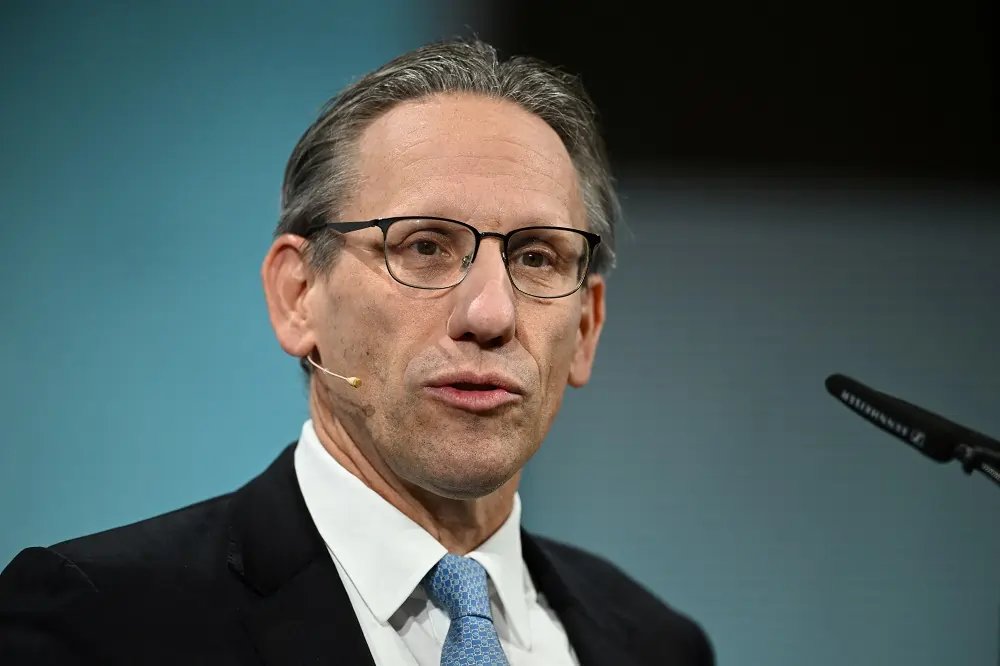Germany considers reforming debt brake amid economic challenges
Published by Jessica Weisman-Pitts
Posted on November 22, 2024
3 min readLast updated: January 28, 2026

Published by Jessica Weisman-Pitts
Posted on November 22, 2024
3 min readLast updated: January 28, 2026

BERLIN (Reuters) – New German finance minister Joerg Kukies said on Friday that a moderate and targeted reform of the debt brake, which limits the public deficit to 0.35% of gross domestic product, was being discussed.
BERLIN (Reuters) – New German finance minister Joerg Kukies said on Friday that a moderate and targeted reform of the debt brake, which limits the public deficit to 0.35% of gross domestic product, was being discussed.
Germany’s ruling Social Democrats (SPD) and Greens in particular have bristled at the spending rules at a time when the Ukraine war has stifled growth in Europe’s largest economy, unlike their more hawkish former coalition partner, the Free Democrats (FDP).
I do think that targeted moderate reforms of the debt brake are possible,” Kukies said in Frankfurt at the European Banking Congress. “They are being broadly debated.”
A dispute over spending led to the collapse of Germany’s government this month, after Chancellor Olaf Scholz of the SPD fired Kukies’ predecessor, Christian Lindner, ejecting Lindner’s pro-market FDP from the coalition.
Scholz said on Friday a “moderate reform” of the debt brake was needed, as additional expenditures for defence should not come at the expense of investment or welfare programmes.
However, any change to the legally enshrined limit is likely to have to wait until after a snap election expected on Feb. 23.
In view of the election, the outgoing parliament will only pass a provisional budget for next year.
GERMANY’S DEFENCE BUDGET NEEDS TO SOAR TO MEET NATO GOAL
In 2028, a total of 80 billion euros ($83 billion) will be needed to comply with the NATO alliance’s target of spending 2% of GDP on defence – a huge leap from the 2025 draft budget, which proposes defence spending of 53 billion euros.
“We won’t get rid of the debt brake. We don’t even want to get rid of it. But we want it to be more manageable,” Scholz said at an event in Berlin.
Kukies said the German central bank had made “very interesting and thoughtful” proposals on how to reform the debt brake, and the Council of Economic Advisers had made proposals for combining existing fiscal solidity with better incentives for public investment.
Kukies said the debt brake ensured budgetary discipline during good years and allowed sufficient financial leeway during times of crisis.
But he said it made sense to examine how to finance necessary long-term investments, adding: “Even if we did not have a debt brake, we would still be subject to the European debt rules”, which mandated fiscal restraint.
Because of the impending election, Kukies said he would ask for more time to submit Germany’s spending plans as required under new EU debt rules.($1 = 0.9590 euros)
(Reporting by Andreas Rinke, Writing by Miranda Murray and Maria Martinez; Editing by Kim Coghill, Toby Chopra and Kevin Liffey)
The debt brake is a fiscal policy rule in Germany that limits the public deficit to 0.35% of gross domestic product (GDP), aimed at ensuring budgetary discipline.
NATO's defense spending target is for member countries to allocate at least 2% of their GDP to defense expenditures, aimed at enhancing collective security.
Explore more articles in the Finance category
